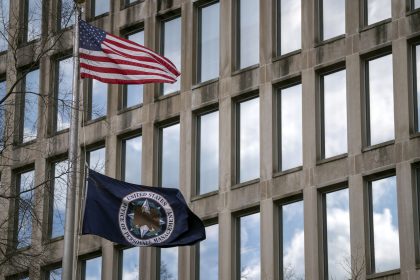House Seeks More Job Protections for Nursing Mothers and Older Applicants

WASHINGTON — A congressional panel on Monday considered whether changes are needed to two proposals for expanding workplace rights of nursing mothers and older job applicants before submitting them to final votes by lawmakers.
The holdup on the bills is confusion about whether they would protect workers or shut them out of jobs they would otherwise be able to fill.
In both cases, nursing mothers and older workers would get greater rights to sue employers who discriminate against them.
Some Republicans asked whether anyone would hire them if the employers knew there was a bigger risk of getting hauled into court or fined for job discrimination.
“There’s a lot of bipartisan agreement on these bills,” said Rep. James McGovern, D-Mass., chairman of the House Rules Committee.
However, Rep. Tom Cole, R-Okla., disagreed, saying the Protect Older Job Applicants Act seeks to resolve a problem that isn’t much of a problem at all.
“While this sounds worthwhile, it is ultimately misguided and unnecessary,” Cole said.
The bill would allow older job applicants to sue employers that engage in a pattern of hiring practices that has a “disparate impact” on them.
Disparate impact is sometimes called “unintentional discrimination.” It results from policies, practices or rules that appear to be neutral but disproportionately impact a protected group.
In the case of the Protect Older Job Applicants Act, the bill would prevent practices such as being passed over for training or promotions offered to younger workers likely to stay in their jobs longer.
The bill would amend the Age Discrimination in Employment Act of 1967, which protects employees at least 40 years old from age-related discrimination in hiring, promotion, discharge, compensation or conditions of employment.
If the bill passes in Congress, it would represent a big change for court decisions on “disparate impact” age discrimination.
In the 2015 case of Villareal v R.J. Reynolds Tobacco Co. and the 2018 case of Kleber v. CareFusion Corp., older job applicants argued they were subjected to disparate impact discrimination because of their ages. Both cases were appealed to U.S. Courts of Appeals, where the plaintiffs lost their lawsuits.
Cole and other Republicans also raised objections about the PUMP for Nursing Mothers Act.
It would require employers to provide employees who are nursing mothers with a reasonable break time each day to either nurse their children or pump breast milk. Employers also would need to offer the women private places, other than bathrooms, to nurse their children or pump breast milk.
“It would impose the greatest cost on small businesses, those least able to afford them,” Cole said.
He also called it unrealistic for many kinds of jobs, such as flight attendants who could not bring their children on board aircraft and could not be given a private place to pump breast milk.
Rep. Tim Walberg, R-Mich., said the greatest beneficiaries of the bills would be trial lawyers who are hired by job applicants or employees with complaints.
“The bill provides a breeding ground for trial lawyers to claim discrimination,” Walberg said.
Rep. Bobby Scott, D-Va., said Republicans are overlooking how many workers could benefit from the PUMP for Nursing Mothers Act.
He said it would expand protections for about nine million workers. He also said it would help them balance work against their own and their children’s health.






















